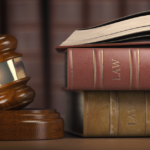


In a pivotal decision, the nation's highest court has denied President-elect Donald Trump's request to delay his sentencing in a high-profile New York criminal case. The sentencing, connected to accusations of falsifying business records, remains scheduled for January 10 despite Trump’s efforts to halt the proceedings.
Fox News reported that the Supreme Court's refusal marks a significant juncture in the legal saga surrounding the President-elect, serving as a reminder of judicial independence amid ongoing political challenges.
Earlier this week, Trump sought intervention from the U.S. Supreme Court to prevent the sentencing established in the case of New York v. Trump.
His petition followed a jury's conviction on charges of falsifying business records, but Trump's legal representatives contended that presidential immunity argued against the proceedings.
Presiding over the case, Judge Juan Merchan scheduled Trump’s sentencing after a jury's guilty verdict. Although Trump entered a plea of not guilty and initiated an appeal, the appeal was dismissed last week by Judge Merchan.
This denial prompted the appeal to the Supreme Court, where Trump's legal team cited errors in prosecution and alleged political motivations behind the charges.
The Supreme Court's quick dismissal of Trump's application underscored the absence of compelling grounds to disrupt the scheduled sentencing. The court indicated that any perceived evidentiary discrepancies should be handled through the normal appeals process, thereby negating the need for immediate Supreme Court involvement.
It was noted in the court's order that Trump did not secure enough votes needed for a stay, with Chief Justice Roberts and Justices Barrett, Sotomayor, Kagan, and Jackson all opposing the petition. Justices Thomas, Alito, Gorsuch, and Kavanaugh expressed a willingness to grant the application, highlighting a division within the bench.
Legal arguments presented on Trump's behalf leaned heavily on the notion of presidential immunity. The team's filings implored the Supreme Court for a temporary halt in New York County's criminal proceedings pending the resolution of Trump's appeal.
Trump's virtual sentencing is slated for January 10 at 9:30 a.m. Despite the legal maneuvering, Judge Merchan has signaled that Trump will receive an unconditional discharge rather than incarceration.
This development arrives as Trump is set to assume his presidential duties on January 20, creating a unique backdrop for the legal proceedings.
His legal counsel has vehemently maintained that the prosecution was fundamentally flawed and driven by partisan objectives, framing the case as politically motivated "lawfare."
According to Trump's attorneys, the case was marred by actions of a disfavored former attorney whose claims allegedly violated Trump's due process rights. They argued the prosecution lacked merit from its initiation.
Despite these assertions, the Supreme Court found the sentencing burden to be minimal, particularly given the trial court’s intention of a brief virtual hearing and a lack of imprisonment. The ruling affirmed that Trump's legal challenges would be more appropriately addressed in ongoing appeal processes rather than through immediate Supreme Court intervention.
This decision further complicates an already contentious legal and political journey for Trump as he prepares for his upcoming inauguration. While his legal team continues to pursue avenues of appeal, the immediate denial signals an endorsement of procedural norms over claims of presidential immunity.



